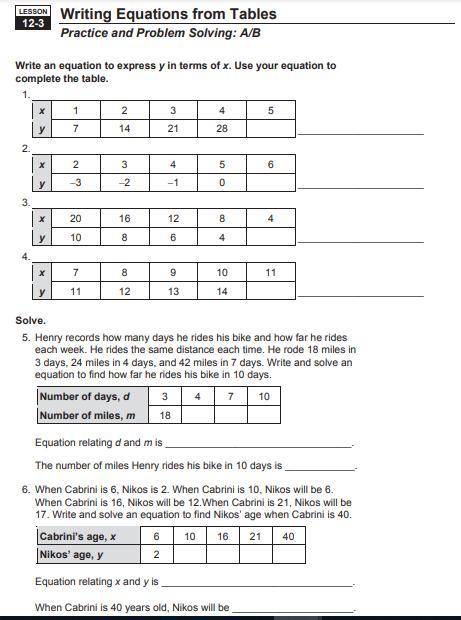Need help with 1-4 somebody got them wrong for me
...

Mathematics, 05.03.2021 02:20 olivialaine31
Need help with 1-4 somebody got them wrong for me


Answers: 3


Other questions on the subject: Mathematics

Mathematics, 21.06.2019 21:30, amesha62
In a test for esp (extrasensory perception), a subject is told that cards only the experimenter can see contain either a star, a circle, a wave, or a square. as the experimenter looks at each of 20 cards in turn, the subject names the shape on the card. a subject who is just guessing has probability 0.25 of guessing correctly on each card. a. the count of correct guesses in 20 cards has a binomial distribution. what are n and p? b. what is the mean number of correct guesses in 20 cards for subjects who are just guessing? c. what is the probability of exactly 5 correct guesses in 20 cards if a subject is just guessing?
Answers: 1

Mathematics, 21.06.2019 23:10, alemorachis49
You just purchased two coins at a price of $670 each. because one of the coins is more collectible, you believe that its value will increase at a rate of 7.1 percent per year, while you believe the second coin will only increase at 6.5 percent per year. if you are correct, how much more will the first coin be worth in 15 years?
Answers: 2

Mathematics, 22.06.2019 00:00, djjdjdjdjdNfnd1941
Consider the following geometry problems in 3-space enter t or f depending on whether the statement is true or false. (you must enter t or f -- true and false will not work.) f equation editorequation editor 1. a plane and a line either intersect or are parallel t equation editorequation editor 2. two planes parallel to a third plane are parallel f equation editorequation editor 3. two lines either intersect or are parallel f equation editorequation editor 4. two planes orthogonal to a third plane are parallel f equation editorequation editor 5. two planes orthogonal to a line are parallel f equation editorequation editor 6. two planes either intersect or are parallel f equation editorequation editor 7. two lines orthogonal to a third line are parallel t equation editorequation editor 8. two lines parallel to a third line are parallel t equation editorequation editor 9. two planes parallel to a line are parallel f equation editorequation editor 10. two lines parallel to a plane are parallel f equation editorequation editor 11. two lines orthogonal to a plane are parallel
Answers: 2

Mathematics, 22.06.2019 02:00, darianhaynes
Study published in the journal of personality and individual differences found that adults with adhd displayed more creative achievement than those who didn't have the disorder. "for the same reason that adhd might create problems, like distraction, it can also allow an openness to new ideas," says holly white, assistant professor of cognitive psychology. "not being completely focused on a task lets the mind make associations that might not have happened otherwise." white and priti shah at the university of michigan gave 60 college students – half of them with adhd – a series of tests measuring creativity across 10 domains. the adhd group scored higher across the board. the adhd group showed more of a preference for brainstorming and generating ideas than the non-adhd group, which preferred refining and clarifying ideas. the adhd status of the participants was established by asking whether the individual had ever been clinically diagnosed with adhd/add. the tests of creativity were pencil-and-paper tasks administered in a laboratory setting. each of the ten scales was comprised of multiple questions, the scores on which were summed (e. g., writing creativity: "how many words can you make from the letters in the word 'psychology' invention creativity: "write down as many uses for a paper clip that you can think of.") this procedure does allow for a participant to be scored as showing no creativity under these conditions. a) state the research question in plain language (i wonder if is related to (1 point) b) state the null hypothesis (1 point) c) state the research hypothesis (1 point) d) is the research hypothesis directional or non-directional (1 point) e) name the predictor / independent variable f) give the operational definition of the predictor / independent variable g) evaluate the construct validity of the predictor / independent variable. (face, procedure, method-match) h) name the outcome / dependent variable i) give the operational definition of the outcome / dependent variable. j) evaluate the construct validity of the outcome / dependent variable. (face, procedure, method-match)
Answers: 1
You know the right answer?
Questions in other subjects:

English, 29.07.2019 11:30



Mathematics, 29.07.2019 11:30

Geography, 29.07.2019 11:30

History, 29.07.2019 11:30




Social Studies, 29.07.2019 11:30



